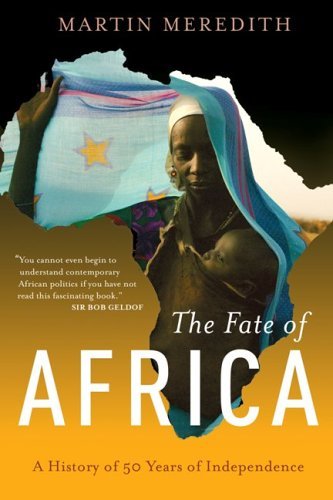What do you think?
Rate this book


752 pages, Paperback
First published January 1, 2005
"By the end of the 1980s, not a single African head of state in three decades had allowed himself to be voted out of office. Of some 150 heads of state who had trodden the African stage, only six had voluntarily relinquished power. They included Senegal’s Léopold Senghor, after twenty years in office; Cameroon’s Ahmadu Ahidjo, after twenty-two years in office; and Tanzania’s Julius Nyerere, after twenty-three years in office."
"Benin thus became the first African state in which the army was forced from power by civilians and the first in which an incumbent president was defeated at the polls."
"It was to become a familiar experience for British governors in Africa to have to Come to terms with nationalist politicians whom they had previously regarded as extremist agitators."
"The loss of so many productive adults through illness and death had a profound impact on every level of society, leaving households and communities struggling to cope with a stream of orphans and cutting into national reservoirs of skilled personnel – teachers, doctors, nurses, administrators and industrial workers."
"Botswana stands out as a unique example of an enduring multiparty democracy with a record of sound economic management, that has used its diamond riches for national advancement and maintained an administration free of corruption."
"Some $850 billion of Western aid has been sunk into Africa, but with little discernible result."
"Although Africa possesses enormous mineral wealth, its entire economic output is less than 2 per cent of world GDP."



"...Yet however much foreign aid is pumped into Africa – whether from China or from the West – it provides no lasting solution. For the sum of Africa’s misfortunes over the past half-century – its wars, its despotisms, its corruption, its droughts, its everyday violence – presents a crisis of far greater magnitude.
At the core of the crisis is the failure of African leaders to provide effective government. Few countries have experienced wise or competent leadership."